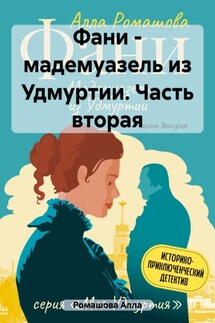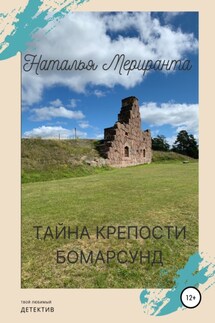The Murder of Roger Ackroyd / Убийство Роджера Экройда - страница 33
‘You say it was nine o’clock, dr Sheppard, when you met this stranger outside the gate?’
He asked the question without turning round.
‘Yes,’ I replied. ‘I heard the church clock chime the hour.’
‘How long would it take him to reach the house – to reach this window, for instance?’
‘Five minutes at the outside. Two or three minutes only if he took the path at the right of the drive and came straight here.’
‘But to do that he would have to know the way. how can I explain myself? – it would mean that he had been here before – that he knew his surroundings.’
‘That is true,’ replied colonel Melrose.
‘We could find out, doubtless, if Mr Ackroyd had received any strangers during the past week?’
‘Young Raymond could tell us that,’ I said.
‘Or Parker,’ suggested colonel Melrose.
‘Ou tous les deux,’ suggested Poirot, smiling.
Colonel Melrose went in search of Raymond, and I rang the bell once more for Parker. Colonel Melrose returned almost immediately, accompanied by the young secretary, whom he introduced to Poirot. Geoffrey Raymond was fresh and debonair as ever. He seemed surprised and delighted to make Poirot’s acquaintance.
‘No idea you’d been living among us incognito, M. Poirot,’ he said. ‘It will be a great privilege to watch you at work – hallo, what’s this?’
Poirot had been standing just to the left of the door. Now he moved aside suddenly, and I saw that while my back was turned he must have swiftly drawn out the armchair till it stood in the position Parker had indicated.
‘Want me to sit in the chair whilst you take a blood test?’ asked Raymond good-humouredly. ‘What’s the idea?’
‘M. raymond, this chair was pulled out – so – last night when Mr Ackroyd was found killed. Someone moved it back again into place. Did you do so?’
The secretary’s reply came without a second’s hesitation. ‘No, indeed I didn’t. I don’t even remember that it was in that position, but it must have been if you say so. Anyway, somebody else must have moved it back to its proper place. Have they destroyed a clue in doing so? Too bad!’
‘It is of no consequence,’ said the detective. ‘of no consequence whatever. What I really want to ask you is this, M. raymond: did any stranger come to see Mr Ackroyd during this past week?’
The secretary reflected for a minute or two, knitting his brows, and during the pause Parker appeared in answer to the bell.
‘No,’ said Raymond at last. ‘I can’t remember anyone. Can you, Parker?’
‘I beg your pardon, sir?’
‘Any stranger coming to see Mr Ackroyd this week?’
The butler reflected for a minute or two.
‘There was the young man who came on Wednesday, sir,’ he said at last. ‘From Curtis and Troute, I understood he was.’
Raymond moved this aside with an impatient hand.
‘Oh! yes, I remember, but that is not the kind of stranger this gentleman means.’ he turned to Poirot. ‘Mr Ackroyd had some idea of purchasing a dictaphone,’ he explained. ‘It would have enabled us to get through a lot more work in a limited time. The firm in question sent down their representative, but nothing came of it. Mr Ackroyd did not make up his mind to purchase.’
Poirot turned to the butler.
‘Can you describe this young man to me, my good Parker?’
‘He was fair-haired, sir, and short. Very neatly dressed in a blue serge suit. A very presentable young man, sir, for his station in life.’
Poirot turned to me.











